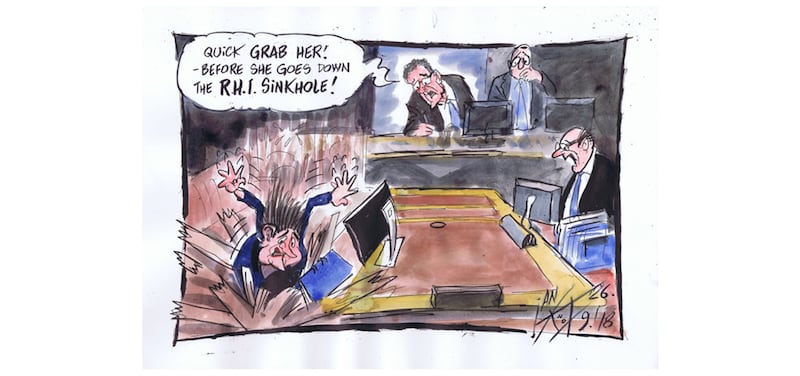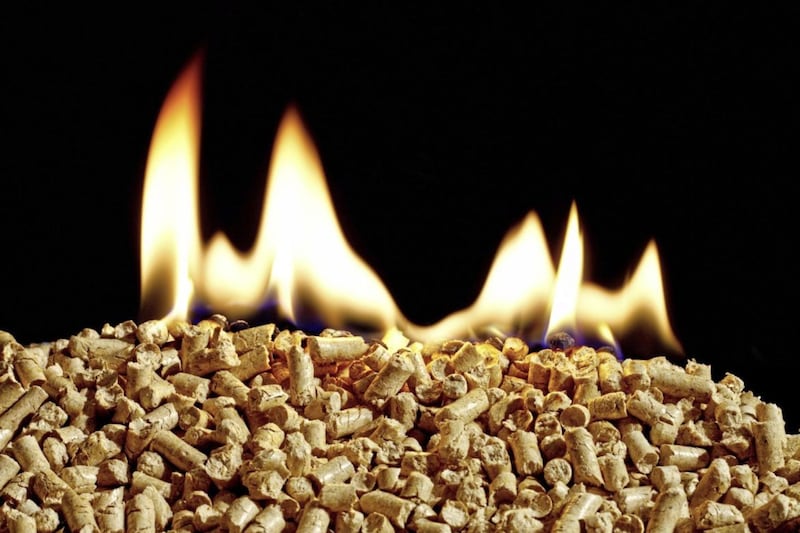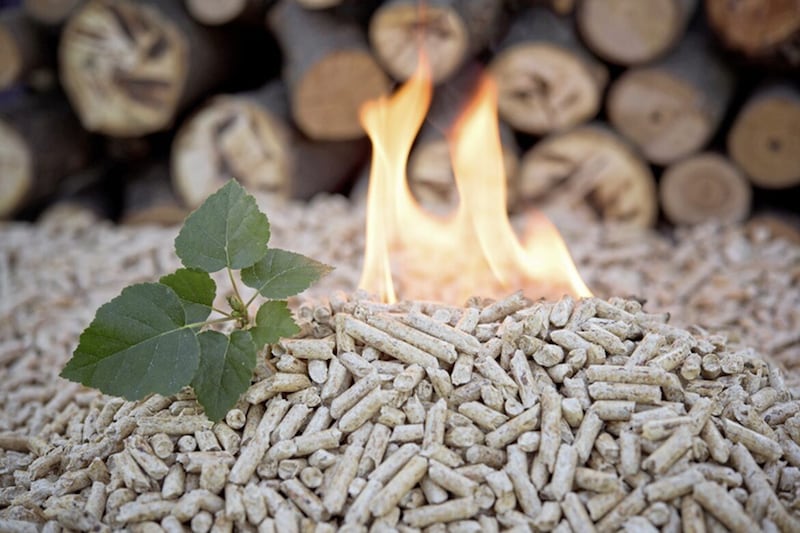Former DUP special adviser (spad) Stephen Brimstone has returned to Stormont for his second day giving evidence to a public inquiry into botched green energy scheme the Renewable Heat Incentive (RHI).
The RHI inquiry is probing why costs for Northern Ireland's Renewable Heat Incentive scheme spiralled. The RHI scheme was aimed at encouraging the use of green energy.
The RHI inquiry is also looking into allegations that some DUP spads attempted to delay the introduction of cost control measures in 2015.
Mr Brimstone served as a spad to DUP ministers in several Northern Ireland governments departments from 2008 to 2015. He successfully applied to the RHI scheme in 2015.
The inquiry heard that in May 2016 the government regulator for gas and electricity markets (Ofgem) received an anonymous complaint about Mr Brimstone's RHI installation.

It claimed it was fraudulent because it was under the non-domestic section of the scheme, but should have been under the less lucrative domestic section.
Ofgem suspended Mr Brimstone's payments under the scheme and carried out an audit of his installation.
A query was raised, but Ofgem eventually found no compliance issues and restored Mr Brimstone's payments.
A second complaint about Mr Brimstone's RHI installation was made in October 2016.
The inquiry heard it was made by Traditional Unionist Voice MLA Jim Allister.
The complaint was sent to the Police Service of Northern Ireland (PSNI), the Northern Ireland Office, Ofgem and Stormont's Department for the Economy, which was running the scheme.
In December 2016 Mr Brimstone was asked by the BBC's Nolan Show about a "heated exchange" between Arlene Foster and Jonathan Bell over the RHI scheme.
Mr Brimstone was present at the meeting in question, but told the BBC there had not been any heated exchange over the RHI issue.
He told the inquiry today that while there had been a heated exchange, it was about a business trip to Canada that Mr Bell had just returned from.
Inquiry chair Sir Patrick Coghlin put to Mr Brimstone that he was not giving a "fulsome response" to the BBC.
"I didn't feel that they needed to know about any other matters that were being discussed at that meeting," Mr Brimstone responded.
"They were asking about the RHI scheme. I do believe I answered it accurately."
Pressed further, Mr Brimstone said he felt if he had said any more, it would have "opened up a whole load of other questions".
Read more:Former DUP Spad Stephen Brimstone quizzed about extent of farming work in boiler shed
Sir Patrick also queried whether Mr Brimstone's responses were being "carefully monitored" by another DUP spad, Timothy Johnston.
"You wanted to make sure that Timothy Johnston was content with your answers which were to be given to the BBC," he said.
"In making him content you were answering this question in an untransparent way, in a limited way."
Mr Brimstone had applied for the non-domestic RHI scheme, which was granted because he said it was also to heat a shed as well as his home.
Inquiry panel member Dame Una O'Brien put it to Mr Brimstone that although this was possible under the RHI rules, was it right? And should he have raised it with the department?
Mr Brimstone responded: "It didn't... my understanding of the scheme was that up until July 2015 I wasn't aware there was a differentiation, for example on the tariff between the GB scheme and the Northern Ireland scheme".
Dame Una pointed out that he was aware there was a domestic scheme with a less generous incentive, saying: "You were very close to the centre of government, you were in a position where you could have potentially pointed this out more explicitly."
Mr Brimstone paused before answering: "The intent behind the scheme was that Europe had placed particular targets on the UK government to reduce reliance on fossil fuels and Co2 emissions.
"So yes, maybe I should have, but my understanding was at that point that literally this was a good scheme to really encourage people to move away, whatever the situation was, and yes they did introduce a domestic scheme... my view was I couldn't heat my shed on the domestic scheme... that would have been ineligible."
Sheepgate #RHI inquiry chair Sir Patrick Coglin questions DUP spad Stephen Brimstone's reactivation of his sheep flock number amid the RHI scandal and probes into his RHI-heated shed and house. pic.twitter.com/mxSTCTWgFs
— Brendan Hughes (@brendanhughes64) September 27, 2018
Following the second complaint about Mr Brimstone's RHI installation, another audit was carried out and he received another confirmation that he was entitled to be on the scheme.
Counsel to the inquiry, Joseph Aiken asked Mr Brimstone: "Did you think that would be the end of it?"
Mr Brimstone responded: "(I had) probably given up at that stage thinking whether it was the end or not".
Mr Brimstone has agreed that taking part in a conversation about RHI with fellow spads Timothy Cairns and Dr Andrew Crawford when he had applied to the scheme was a conflict of interest.
He also agreed that he should not have agreed to receive an email with more information about the RHI scheme from Mr Cairns, who was spad at the enterprise department which ran it.
When asked why, Mr Brimstone responded: "I believe I was trying to be helpful".
When asked did he think it was a conflict of interest at the time, Mr Brimstone said: "I don't believe I did".
Invited to explain further, he told the inquiry: "I have asked myself that question so many times".
Mr Brimstone said previously he had been "pedantic" about approaching department permanent secretaries to check whether, for example, an invitation to an event, might be a conflict of interest.
"I should have stepped back completely at that time," he added.
"I don't understand why, other than happening to be in the wrong place at the wrong time, and involved in a discussion. I believe it was because of where I was seated between the two guys," Mr Brimstone said.
He said it was not unusual for DUP spads to share documents with each other for the purposes of seeking advice.
When asked why he opened the email instead of taking that second opportunity to step away from the exchange over RHI, Mr Brimstone said he had offered to help Mr Cairns.
The inquiry heard Mr Brimstone also responded to the email, which Mr Aiken described as a third opportunity to step away from the exchange.
"Bear in mind, submissions are coming up all the time, none of this excuses what I have done, I am just trying to explain it properly," Mr Brimstone told the inquiry.
"The mindset (in which) I was reading this was that Timothy had sent a paper through that officials said was coming, he wanted to understand from our experience in the past, how we would have dealt with it ... probably I was in solution mode or helpful mode, where I should have had flags raised about how does this impact on me and should I step back from it."
Mr Brimstone told the inquiry he did not share with anyone the proposed cost controls for RHI which he and the other spads were discussing.
These cost control measures put a cap on the non-domestic RHI scheme subsidies.
Mr Brimstone became special adviser to Arlene Foster in January 2016 when she became First Minister.
He said he told Mrs Foster verbally that he had installed a biomass boiler and applied to join the RHI scheme when she asked him to become her spad.
"There was a general conversation going on at that time in amongst political parties, people were in essence trying to extend out this scheme, there was lobbying going on - not with me, before anyone starts going there - there was a general discussion around the RHI scheme, the potential for closing it down... so I felt in and around that period when she was appointing me as special adviser that I needed to make her aware that I had applied to the scheme," Mr Brimstone told the inquiry.
"She just thanked me for telling her, I think she asked me was everything OK with it? I would have said yes, in my belief everything is OK with the application, and that was the end of the matter."
Mr Brimstone said he didn't put it in writing because it was not how they did things.
"That wasn't the way we worked, we generally had conversations with each other, other than a letter of resignation or a letter of appointment. That was the sort of thing you put in writing," he told the inquiry.
Mr Aiken responded: "I think the inquiry has worked that out".
Mr Brimstone said that his spad colleague Timothy Johnston would also have been aware that he had applied to the RHI scheme.
"I think Timothy knew," he told the inquiry.
"We were close friends, so I imagine it probably came up as a discussion."
When asked whether Mr Johnston had told him to stay out of the RHI discussions, Mr Brimstone said: "No".
Panel member Dr Keith MacLean commented: "It sounds like it goes beyond your judgment. You have told Mrs Foster, you have told Mr Johnston and none of the three of you have come to a conclusion or had a discussion about the need to do something formally and for you to withdraw."
Mr Brimstone said he does not remember a high-level meeting at which the RHI scheme was discussed in February 2016.
Arlene Foster, deputy first minister Martin McGuinness and top officials were involved in the meeting where the closure of the RHI scheme was discussed.
The inquiry heard that Mr Brimstone attended as one of Mrs Foster's advisers.
He told the inquiry that he has no memory of the meeting, adding he knows he should not have taken place in any discussion about the RHI scheme.
Mr Brimstone was asked why he did not keep his flock number, which is required in order to keep sheep.
The RHI inquiry heard Mr Brimstone got his flock number in 2006 - around the time he built the shed adjacent to his dwelling house.
One of the non-domestic purposes of the shed, Mr Brimstone previously told the inquiry, was to shelter sheep if necessary.
However the inquiry heard Mr Brimstone archived his flock number in 2009. The flock number was then re-activated in January 2017.
Mr Brimstone had resigned from his spad job at the end of 2016.
When asked to explain why he reactivated his flock number in 2017, he said he had two young boys who loved sheep and wanted to farm their own.
Sir Patrick queried this answer.
He also asked why Mr Brimstone let his stock number go in 2009 when his shed uses were listed as non-domestic, with keeping sheep listed as one of the purposes of the shed.
Mr Brimstone said while his flock number was inactive the shed that contained his boiler was used for his father-in-law's sheep.
When asked if there was any connection between him reactivating the flock number and finding out that there had been a complaint about his boiler installation, Mr Brimstone responded, saying "no".
Read more:
- Former DUP Spad Stephen Brimstone challenged over RHI shed
- Sinn Féin sues DUP over whistleblower note claim
- Simon Hamilton was 'furious' at short notice ahead of damning Audit Office RHI report
- Allison Morris: The real casualty of RHI is public confidence in local politics (Premium)
- Robin Swann says DUP involvement in RHI has 'damaged unionism'
Follow the Twitter thread below:
The inquiry is hearing about the audit reports carried out re Stephen Brimstone's RHI boiler.
— Brendan Hughes (@brendanhughes64) September 27, 2018
Inquiry chair Sir Patrick Coghlin says: "We have two reports from and independent auditor which between the two of them have the intervention of Ofgem, and the reports changed."







